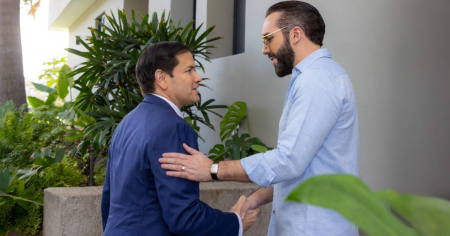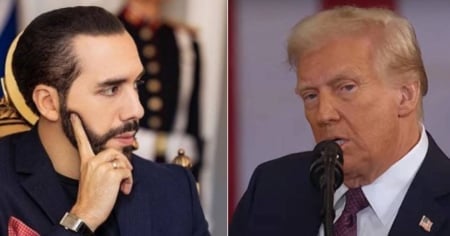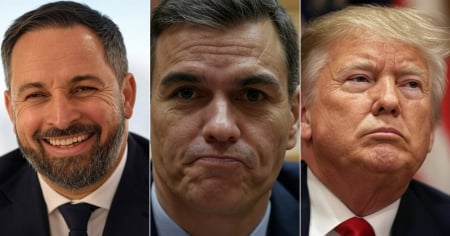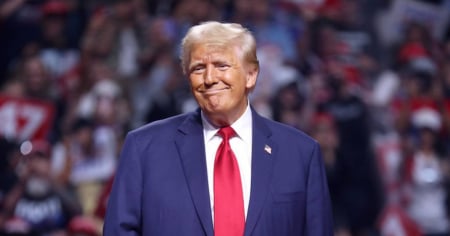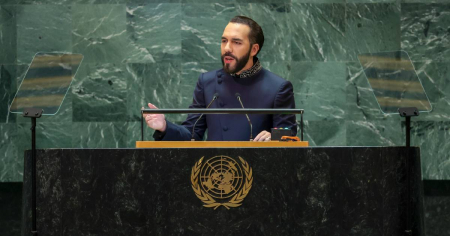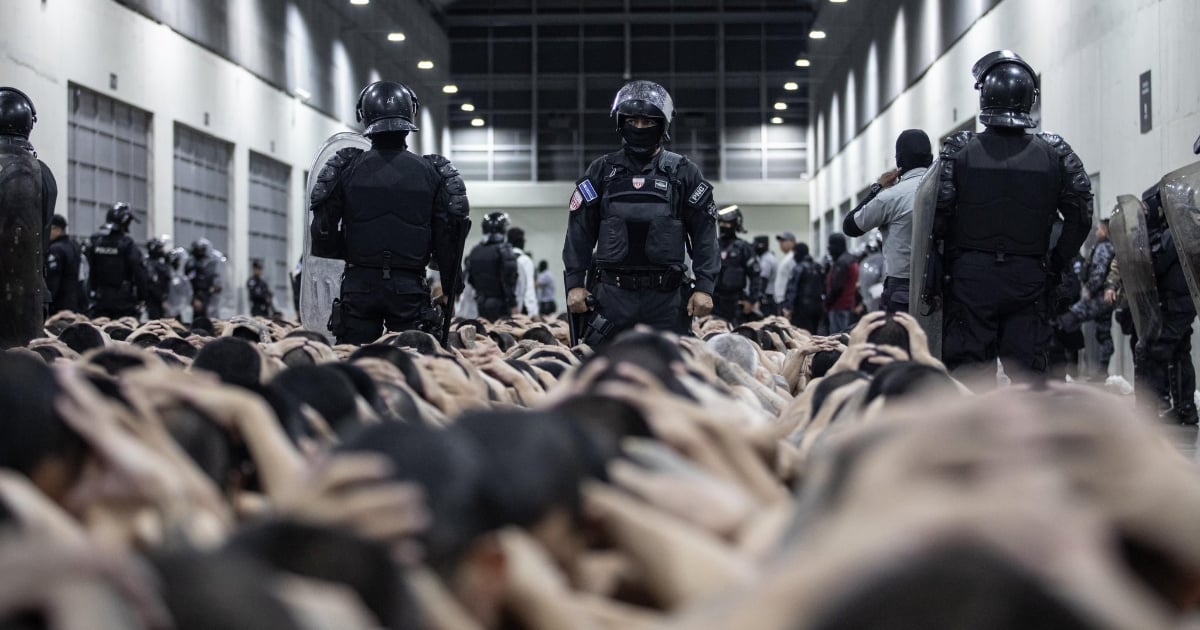
Related videos:
The president of El Salvador, Nayib Bukele, reached an agreement with the U.S. Secretary of State, Marco Rubio, to accept the arrival of deportees of other nationalities, including dangerous criminals who are currently serving sentences in U.S. territory.
The pact, announced this Tuesday after a three-hour meeting between Bukele and Rubio at the presidential residence by Lake Coatepeque, would allow El Salvador to house foreign inmates in the Terrorism Confinement Center (CECOT), the mega-prison built by the Salvadoran government with a capacity for 40,000 inmates.
An unprecedented agreement
Rubio described the agreement as "the most extraordinary in the world" and highlighted Bukele's gesture as an "unprecedented offer of friendship."
The Salvadoran president, for his part, explained in a message on social media platform X that his country is willing to accept only imprisoned criminals, including convicted U.S. citizens, in exchange for a fee.
"The rate would be relatively low for the U.S., but significant for us, which would make our entire penitentiary system sustainable," Bukele clarified.
Although the Trump administration has not confirmed whether it is considering sending imprisoned American citizens to El Salvador, Rubio stated that Washington is "incredibly grateful" and that the U.S. president is already aware of the proposal.
Scope of the agreement and background
The spokesperson for the State Department, Tammy Bruce, specified that El Salvador will receive violent illegal immigrants, including members of the Venezuelan gang Tren de Aragua, as well as criminals of any nationality.
The measure aligns with the Trump administration's goal to
This new agreement extends the pact reached in 2019 under the Asylum Cooperation Agreement (ACA), through which El Salvador committed to accepting deportees awaiting the resolution of their asylum requests. However, the agreement never came into effect and was rescinded by the Biden administration in 2021.
Cooperation in nuclear energy
In addition to the migration agreement, Bukele and Rubio signed a Memorandum of Understanding on Strategic Civil Nuclear Cooperation, in which the U.S. commits to promoting the development of nuclear infrastructure in El Salvador.
According to BBC, both nations reaffirmed their commitment to the Treaty on the Non-Proliferation of Nuclear Weapons and the promotion of peaceful uses of nuclear energy.
The Salvadoran Foreign Minister, Alexandra Hill Tinoco, emphasized that this pact will allow her country to have constant energy at competitive prices without relying on international fossil fuel markets.
A strengthened relationship
The relationship between Bukele and the Trump administration has strengthened in recent years. The Salvadoran leader has been praised in conservative circles in the U.S. for his security strategy, which has drastically reduced homicide rates in his country at the expense of measures that have been criticized by human rights organizations.
For his part, Rubio will continue his tour of Central America with visits to Costa Rica, Guatemala, and the Dominican Republic, where he will address issues of security, migration, and China's influence in the region.
Meanwhile, the migration agreement with El Salvador marks a new chapter in the U.S. government's deportation strategy and in the consolidation of Bukele's prison model.
Filed under:

